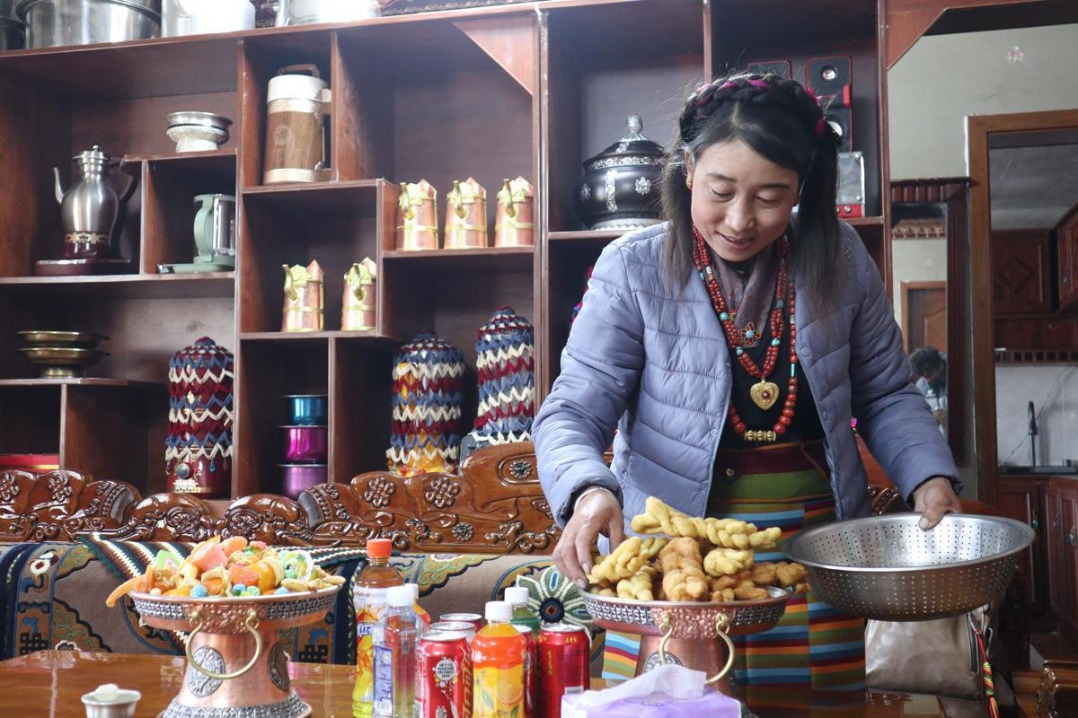HK's investment allure is 'intact'


Hong Kong's allure as a global financial hub remains intact despite the fallout from the novel coronavirus outbreak, as the recent economic policies of the central government have lent further strength to the special administrative region's capital market and increased its appeal to global investors, said a top company executive from a State-owned conglomerate.
"The financial markets in Hong Kong have shown great resilience amid the novel coronavirus outbreak and continued to foster economic development on the mainland. Enterprises from the mainland have participated actively in the Hong Kong capital market during the past few months," Fu Yuning, chairman of China Resources Group, told China Daily in an interview in Beijing.
The central government's economic stimulus policies will help Hong Kong to maintain its status as a major international financial center for a long time, he said. With its free market economy and mature and sophisticated financial markets, Hong Kong has traditionally been considered the primary "gateway" in and out of the mainland by international businesses and investors.
Hong Kong still has some advantages, such as professional talents and mature laws, as well as developed institutional arrangements, Fu said.
Since the COVID-19 outbreak, the Hong Kong-based China Resources Group has provided medical personnel to support the epidemic control work and increased medical supplies and supply of necessities to people in the special administrative region, the chairman said.
"The stable social environment will help stabilize investors' expectations, while global investors can be a part of the mainland's economic development through the financial platforms in the SAR."
Hong Kong's integration into the mainland's economic development, especially as part of the Guangdong-Hong Kong-Macao Greater Bay Area development initiative, will boost its financial service businesses, such as those involving bond and stock financing. "Investors from the mainland will continue to stabilize the HK financial market," Fu said.
Enterprises from the mainland also have several opportunities to increase their investment in Hong Kong and support its economic development, while taking advantage of its global capital and financial platforms for "going out". As an international trade and logistics center, Hong Kong's economic recovery after the pandemic will also influence the regional economy, including Japan and Southeast Asia, its major trading partners, he said.
Guo Shuqing, Party secretary of the People's Bank of China, the central bank, said at a meeting on Wednesday that the central bank will unswervingly support Hong Kong's development as an international financial center and maintain its economic and financial stability and prosperity.
A spokesperson of the China Banking and Insurance Regulatory Commission said on Thursday that Hong Kong's financial market remains stable, and the US dollar-pegged exchange rate system for the Hong Kong dollar remains steady. "There are no abnormal capital flows out of the region. The present situation is an indication of the global investors' confidence in Hong Kong."
Solid economic fundamentals and an accommodative international business environment in the SAR have facilitated global investment. "With foreign exchange reserves of $440 billion and a fiscal reserve of more than HK$1 trillion ($129 billion), Hong Kong is more than able to cope with the risks and challenges," the CBIRC spokesperson said.
Enterprises will still be interested in listing on the Hong Kong stock exchange, said Louis Kuijs, head of Asia Economics of Oxford Economics, a British think tank. "In fact, the rising US-China tensions should increase the attractiveness of Hong Kong as a listing destination as it is the only place where they can buy stocks of mainland-listed companies," said Kuijs.
Last month, China announced new policies and pilot programs to promote financial opening-up in the Guangdong-Hong Kong-Macao Greater Bay Area to facilitate cross-border investment and promote connections with the offshore market. The central bank and the banking, insurance, securities and foreign exchange regulators jointly issued new measures to guide financial reforms in the area.
They have decided to start pilots for qualified foreign limited partner (QFLP), qualified domestic limited partner (QDLP), and the qualified domestic investment enterprise (QDIE) schemes, enabling institutional investors in Hong Kong and Macao to participate in private equity and venture capital funds in the Greater Bay Area through the QFLP scheme.
It has also been planned to establish a Guangdong-Hong Kong-Macao Greater Bay Area international commercial bank in the China (Guangdong) Pilot Free Trade Zone. Commercial banks will be encouraged to set up financial asset investment and wealth management companies in the area, without any caps on foreign ownership.
- Jilin winter fishing festival fetches record auction, visitors
- China pushes higher education reform with focus on tech and industry
- Emergency crews battle wildfire in Shenzhen
- China CDC urges precaution amid surge in rhinovirus cases
- Govt to streamline health insurance payments over next 3 years
- China urges global vigilance against revival of Japanese militarism





































